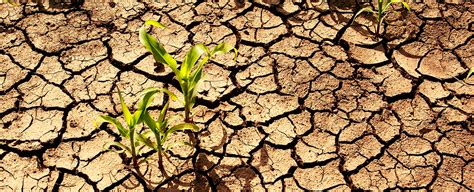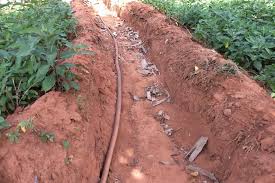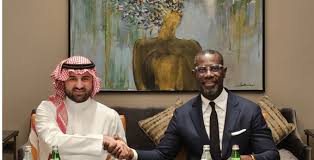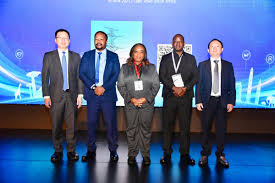Recently, the bonn climate talks ended with a plethora of underwhelming announcements that seem to suggest that developed countries are not ready for climate change mitigation; as even agreements on the starting agenda was not agreed on till a day before the two week session was due to end.
This, even though the embattled COP28 President-designate, Sultan Al Jabber, made a seemingly forced admission that a fossil fuel phasedown is now “inevitable”, the first time he has mentioned such an idea; though no timeline was mentioned, leaving it open to interpretation.
On the sidelines, there have been stringent calls for developing countries to fulfill their pledge of $100billion, supposed to have been delivered between 2020 and 2025. Unfortunately, these climate funds are not yet forthcoming as many countries appear to have “long standing grievances” over the provision of money that developing countries say they need in order to cut their emissions.
And this rubs the wrong way.
As a kid, I was fascinated by the concept of the russian roulette. Forgive me, it was a James Bond thing. I really couldn’t get enough of reading Mr Bond while growing up. But back to Russian Roulette; a lethal game of chance in which a player spins a revolver and pulls the trigger.
Now the chance there is that usually almost all the bullets bar one or two are removed and the remaining spaced. Its all about taking foolhardy risks.
Now what does Russian Roulette have to do with Africa’s Climate Journey?
Daily, the continent is inundated with seemingly wonderful multiple grant /aid packages, geared towards ensuring that Africa refrains from emulating the growth trajectory of the rest of the world that have exacerbated global warming, therefore climate change.
There is hardly any country not enjoying free aid or grant. It’s almost a global version of the “Polluter Pays Principle”, and its become a drag out war to African countries going all out to take their share of the grant largesse for their projects and initiatives.
Wonderful; isn’t it?
In this analogy, Africa is the player, the bullets are the aid/grant packages while the shooter is the rest of the friendly world who purport to see Africa rise.
Hmmm…….
But rather than the shooter hoping one of the bullets hit, Africa in this case is the one hoping and praying that one of the bullets actually hit their mark.
Almost all aid/grant awards come with conditions, so much so that only foreign companies or foreign technical expertise can undertake such works. From World bank energy projects which call for companies to have a minimum of $20million USD in annual turnover (really, in Africa), to those conditions that specify some level of expertise only obtainable outside the country that invariably do not translate into local impact because the evolution of that expertise does not match the implementation location.
And that’s the crux of the matter
Essentially, Europe (as an euphemism for the rest of the world), is paying Africa to slow down its industralization drive and reinforce the consumerism policy that has kept Africa perpetually on the back foot.
Yes, quite a lot of wonderful things are happening and we still hope they do but in the grand scheme of development, what impact have they wrought?
The drive towards energy transition has become almost a farce. The lie was pulled apart at the height of the Russo-Ukraine war when Western countries started ramping up their fossil fuel plants.
From Germany, to the United Kingdom, France, China and the United States (though to be fair, the US has always been ambivalent about fossil fuel reduction), they all quickly focused more on maintaining their energy security rather than on energy transition. But where has that left Africa?
Africa’s Energy Security challenges are fully documented and obvious.
Africa does not have the energy needed to power its industrialization and move from a consumer society to a producing society and Climate Change has widened that gulf. The financial and political resources to ensure energy security at all cost is seriously lacking and while, at just three percent contribution to global warming, Africa still has the leeway to pursue sources of energy that can scale up its industrialization but then, the continent has to decide on the best possible methods of ensuring this without adding to global pollution.
But one major question remains for Africa? What Energy Policy shall ensure sustainable industrialization and growth for Africa and what path should we take to achieve this; Energy Security, Energy Transition and/or Just Energy Transition?
The world has a fever. It burns hotter and higher with every day that passes…Statistics tells us that Africa is where the fever is at its most intense and people at the most vulnerable” Ban Ki-Moon, Former UN Secretary-General
Unfortunately, the world might not be ready to allow Africa make that decision on its own. At the 2022 Global Center for Adaptation (GCA) Summit at Rotterdam, the embarrassment the western world has for Africa couldn’t have been more pronounced.
While African leaders gathered in the heart of Europe to discuss adaptation and mitigation strategies, European heads of state were mostly absent. Due mostly to the fact most of those countries are grappling with their own energy crises and going back to Coal investments; while at the same time demanding Africa continues on the path of clean energy technologies.
While the United States has been punching far below its weight, approving only $1 billion for climate finance obligations to the World’s poorest countries (read Africa), China has been steadily promoting green development under the Belt and Road initiative. However, china’s investments are a double – edged sword, as China remains the largest developer of coal, actually increasing its investments in that.
Roulette Interventions
Despite abundant resources, no African country seems to have the capacity to develop at pace without multiple forms of aid and grants dictating to them.
Climate action activities have gone beyond tree planting and carbon sequestration measures and is now bent towards sustainability, circular economy and enhanced adaptation and mitigation measures for all sectors. This means whether in health, agriculture, education, sports; the concept of climate change has become embedded and it no longer is just an environmental issue but deals with the way and manner of livelihoods and co-existence.
And with the multiplicity of underdeveloped issues, untenable systems and orientations that abound, indeed grants and aid form a critical component for addressing them all.
Unfortunately, as stated earlier in this piece, such grants and aid have not effected an acceptable level of impact in their implementation.
Most interventions are put together without recourse to appropriate studies and assessments on a cultural, religious and economical basis. So, when implemented, they end up causing another negative scenario or fail. This is called ‘Roulette Intervention’ (Hey, I get to call it what I want).
The solution does appear obvious, but then if funds are not available for such, what happens then?
Re-Assessing Africa’s Climate Journey
Against the backdrop of the commitments made at the 2022 “African” COP in Egypt on loss and damages, African countries came away with so much hope. Unfortunately, it does appear that despite agreements on establishing the fund, it’s turning out into a ;Placebo fund’, lots of noise but little on actual funding commitments.
This is especially critical as in just a few months, it will be another round of talks at UNFCCC COP28 and ultimately, this will be on the agenda. However, between now and then, what happens to all the losses and damages that have occurred in the interim, who pays for them; are they even going to be considered?
Africa must settle down and re-assess its climate change adaptation and mitigation journey. The era of automatic grants and aid is slowly dying off and only a fully integrated and locally accepted climate action policy based on local realities will serve to ensure the journey remains on steam and the targets achievable.







